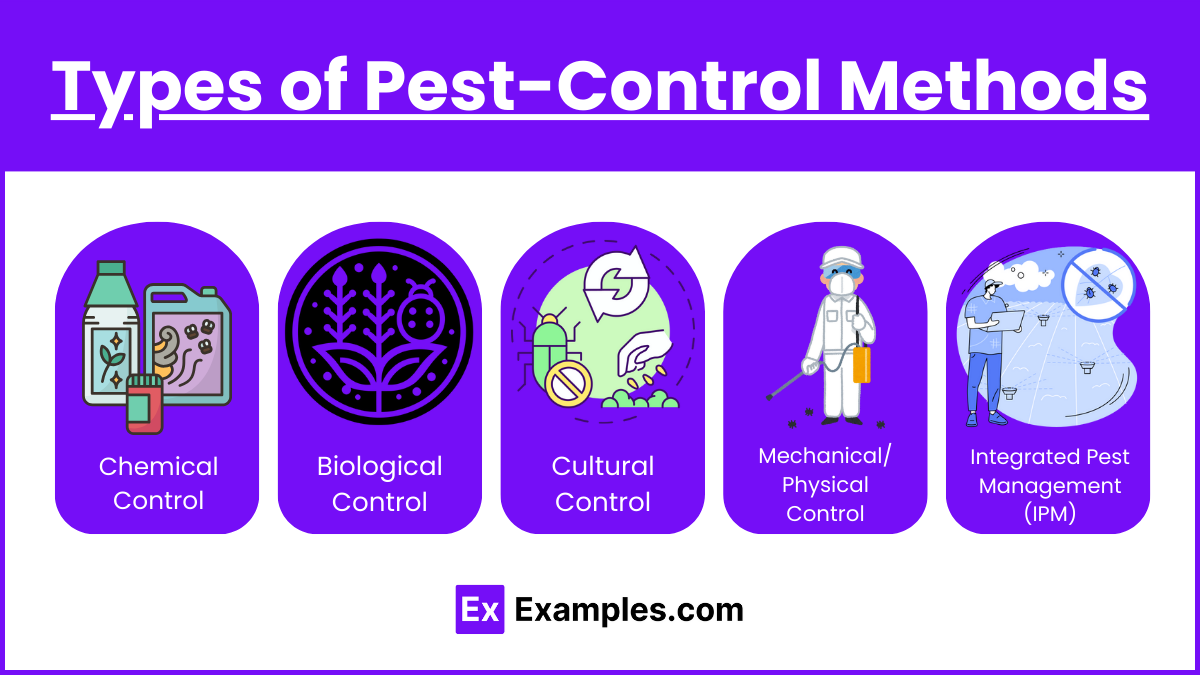The 9-Minute Rule for Pest Control
The 9-Minute Rule for Pest Control
Blog Article
What Does Pest Control Do?
Table of ContentsFacts About Pest Control UncoveredPest Control for DummiesPest Control Can Be Fun For EveryoneFascination About Pest ControlThings about Pest Control
Limitations of Chemical Management Have the ability to assess pest troubles, identify if management is needed, and make ideal suggestions making use of IPM techniques. Know with various methods of pest administration - their advantages and limitations. Understand the worth of valuable pests. It is not possibleor also desirableto rid gardens of all pests.This chapter discusses (IPM), a technique that makes use of understanding regarding parasites and their, methods, nonchemical techniques, and pesticides to take care of parasite problems. Extra information about IPM for details plants is included in chapters that focus on those plants. Nonchemical insect control actions are worried in phase 17, "Organic Gardening." Managing birds and creatures is covered in chapter 20, "Wild animals." Taking care of in the backyard and yard is covered in chapter 6, "Weeds." Pests in a yard or landscape may consist of pests and termites, weeds,, creatures, and birds.
Insects and weeds, however, play a role in the. After planting a yard or developing a grass, the natural process of plant succession starts to improve and nonnative plants.
What we call "bugs" become part of a natural system at the workplace. An ecological community has no parasites. Only people consider particular types bugs when they occur where they are not desired. We will certainly be a lot more successful in managing undesirable varieties when we realize that these organisms adhere to foreseeable patterns that we can utilize to our advantage.
All About Pest Control
Bugs prone to a chemical were quickly eliminated, leaving immune ones to reproduce and multiply. It became clear that pesticides alone would certainly not address all pest troubles. Instead, overuse of pesticides caused the growth of immune pests. Researchers started to establish a brand-new approach to pest control. This brand-new approach was referred to as integrated parasite administration (IPM).
An IPM plan allows some degree of parasites in the setting. Insects are much less likely to survive a program that utilizes several methods of decreasing their populations. Integrated bug monitoring was initial suggested by entomologists because bugs were the initial group of bugs to prove tough to take care of with chemicals alone.
pest and host precisely. and consider financial or aesthetic injury. A limit is the point Read Full Report at which activity must be taken. a treatment strategy using mechanical, social, organic, or chemical controls, or a combination of these techniques. success of therapies. IPM has actually prolonged beyond pests to administration of all pest populations: weeds, condition organisms, and mammals.
9 Easy Facts About Pest Control Shown
Monitoring rather than removal of parasites is the objective. An IPM strategy begins with a mindful evaluation of each pest problem.
Clover growing in a yard may be deemed an undesirable weed, however as a bean it is manufacturing nitrogen for the soil and the blossoms are giving nectar to honey bees and other. Resistance for some weeds might belong to an IPM strategy. might be consuming the fallen leaves of a plant, however when they are identified as the larvae of Eastern tiger swallowtail butterflies, their damages might be tolerated so we can take pleasure in the stunning butterfly.

The second most crucial device in insect monitoring is early treatment. Responding to issues rapidly, prior to they have time to increase, needs a much less dramatic intervention.
Some Of Pest Control
Several safe, functional, nonchemical techniques of plant defense and insect management may reduce or get rid of the need Extra resources to spray. Various other techniques are most useful when made use of with pesticides. To implement administration methods correctly and to lessen losses, gardeners should understand the kinds of parasites that strike plants and comprehend pest biology.

Performing a dirt examination and using just the suggested amount of fertilizer and lime takes full advantage of the benefit to the plant while lessening problems connected to extreme usage of fertilizer - Pest Control. Treatment the soil with several inches of mulch protects the plant in numerous ways: minimizing dirt water loss to evaporation, reducing weed competitors, giving nutrients, and developing an appropriate environment for earthworms and bacteria that maintain the soil loosened for roots and damage down natural material to release nutrients
If mulch touches the trunk, it can develop a method for voles, microorganisms, and fungi to strike the plant. Do not utilize manure or garden compost that has not thoroughly broken down official source as a leading clothing since it can urge unfavorable parasites. Study recommends that farming is detrimental to dirt framework.
An Unbiased View of Pest Control
If tilling is regarded essential, consider doing it in the fall when the life cycles of many insects brings them near the surface. At the surface, parasites end up being subjected to the weather as well as birds and various other natural enemies.
Report this page